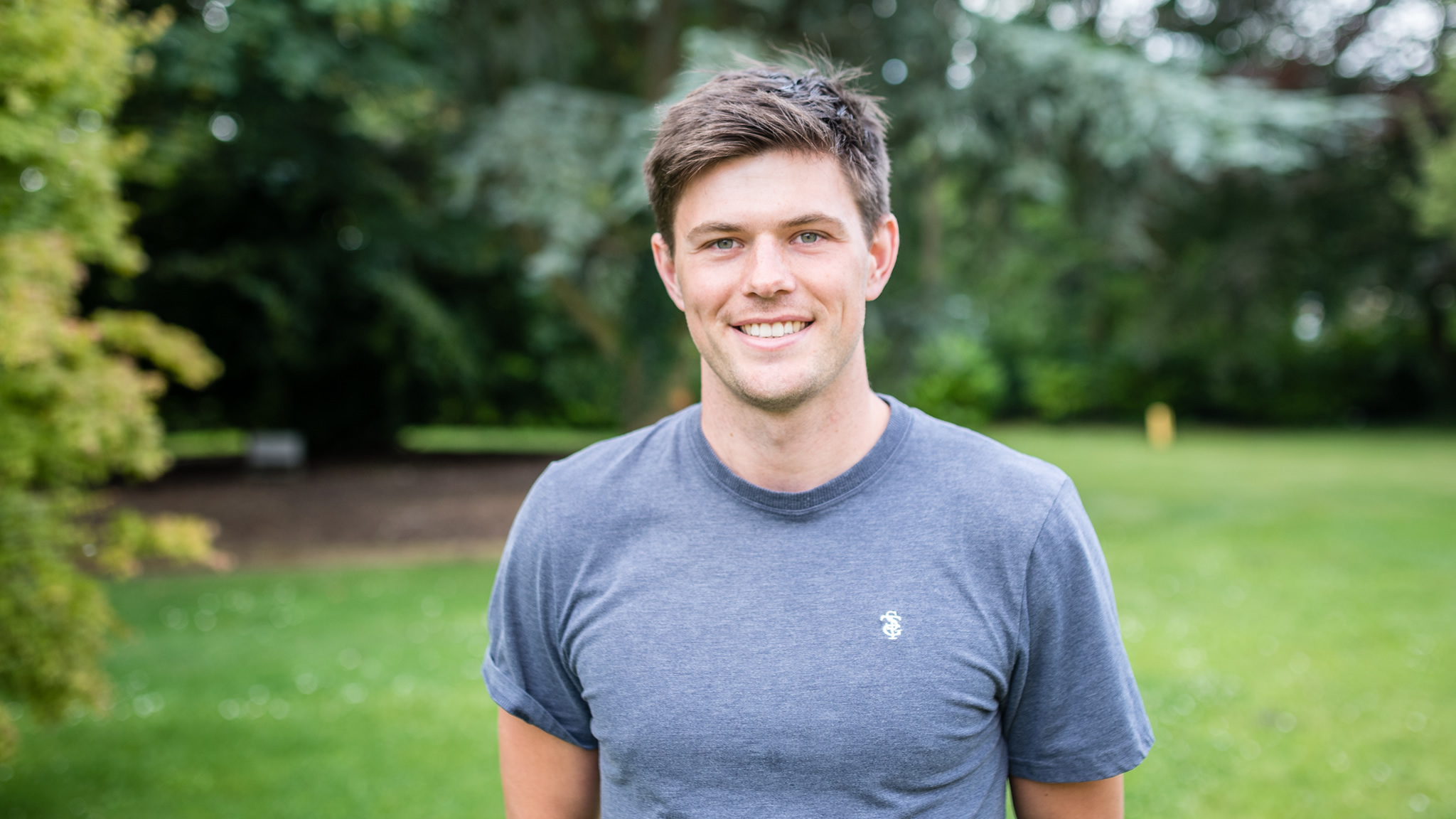Jamie Courtenay represented England as a decathlete while at school and University. Then a severe injury while practising athletics led to a foot and ankle operation.
This sparked Jamie's interest in tissue engineering.
’I am my own case study for my PhD. One day I want to be able to use tissue engineering to find ways to treat serious injuries that athletes come across and put them back up on their own feet.’
Interdisciplinary research
Jamie comes from a traditional chemistry background, but working on tissue engineering also involves biology, chemical engineering and material science. This has helped Jamie widen his skill set immensely.
Jamie's PhD project investigates opportunities for novel, sustainable ingredients for formulated products and tissue engineering scaffolds. His goal is for his research to be used for biomedical applications.
‘Cellulose is a very interesting material,’ says Jamie, ‘It is the most abundant polymer on the planet. It comes from wood, which makes it a great renewable natural resource. Its versatile nature makes it very attractive to scientists as it can be modified to increase its functionality. My aim is to use cellulose as scaffolds to grow cells on.’
A life-changing opportunity
As part of our Global Innovation Initiative (GII), Jamie visited the University of Campinas (UNICAMP) in São Paulo to work with Professor Munir S Skaf, an expert in the behaviour of cellulose-based materials.
During his visit to Brazil, Jamie visited the Brazilian National Nanotechnology Laboratory (LNNano), where he got the opportunity to use cutting-edge instruments to characterise his materials and dip his hands into computational modelling for the first time.
Professor Skaf said, ‘It was a real pleasure to me and my group to spend time with Jamie during his visit. Jamie developed some real nice modelling of the hydration properties of cellulose and functionalised cellulose. We are certain that Jamie's modelling will help to interpret experimental data obtained at Bath. I hope Jamie has enjoyed his stay as much as we have.’
‘Without this collaboration,’ said Jamie, ‘I would have never had this unique life-changing opportunity to learn from the best and gain numerous life skills.’
Jamie stayed in a shared flat in São Paulo and became immersed in the culture.
‘It was daunting at the beginning - the idea of moving to another continent for two months and not knowing anything about their language.
‘It’s different when you’re on holiday. You don’t go grocery shopping or cook your own food. Since I felt like I actually lived there, I immersed into the culture pretty quickly. In a way, the culture was pretty similar to ours here in Britain - they loved having a natter over a cup of tea or coffee and talking about politics.
‘Luckily, English is the universal language for science, so the language wasn’t a barrier when I worked in the labs.’
